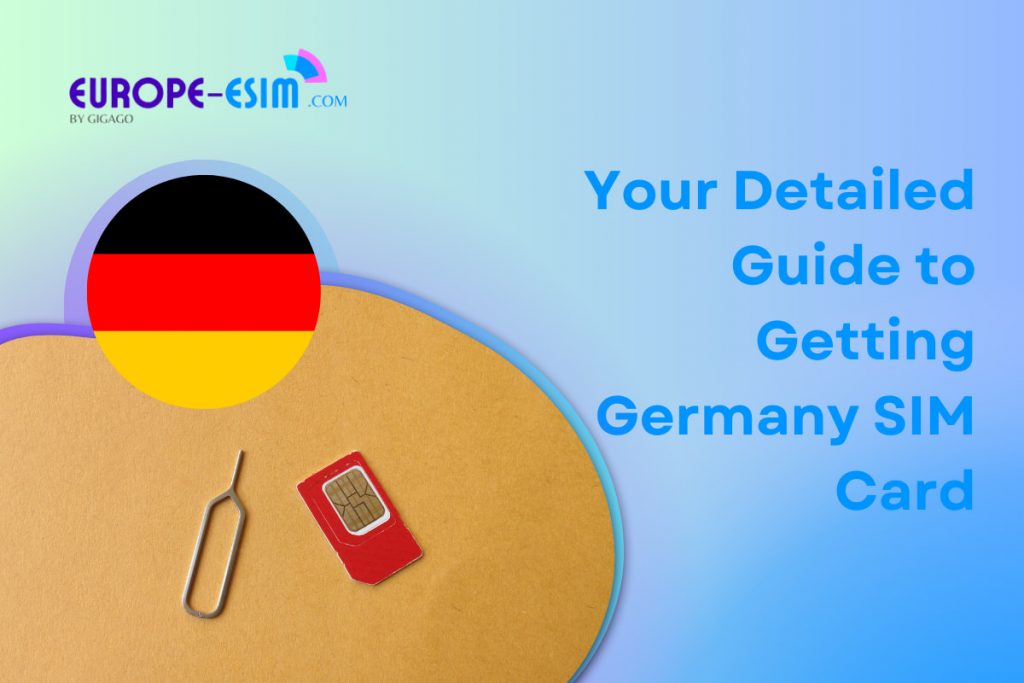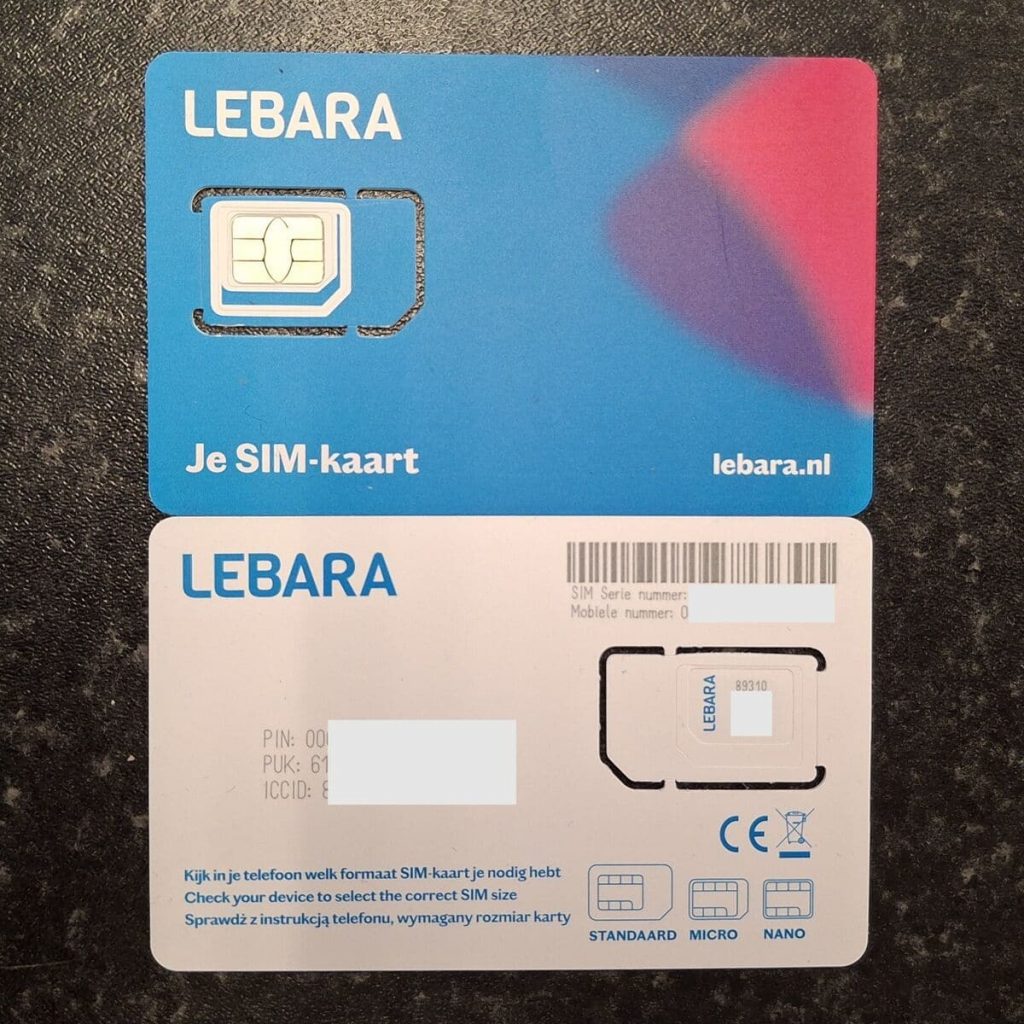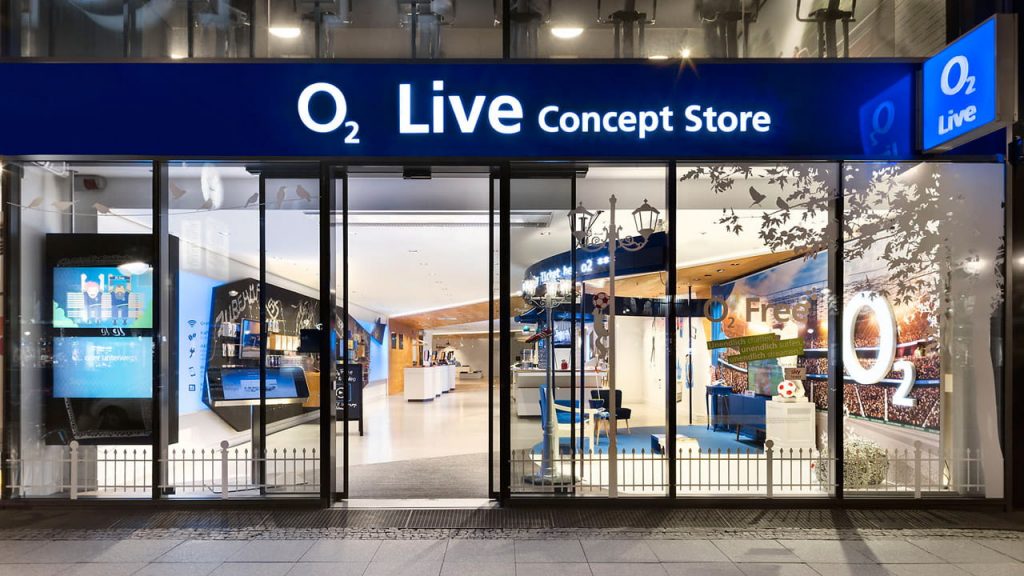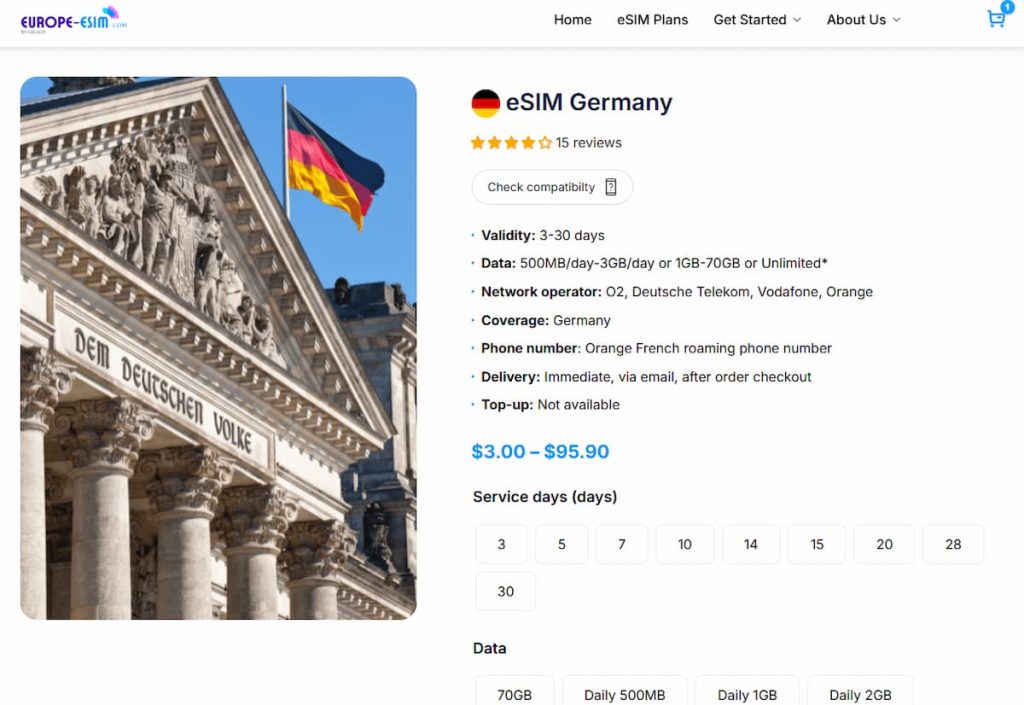A local Germany SIM card makes staying engaged in Germany easy and affordable which offers you great data options, reliable coverage, and seamless access to local networks. In this guide, you’ll find everything you need to know to pick the perfect SIM card, whether you prefer prepaid or eSIM options. Let’s get started!

Table of Contents
I. Why choose a prepaid Germany SIM card over roaming?
Choosing between using your home network’s roaming service or using a local SIM card in Germany can significantly impact your connectivity and budget. Here’s why a German SIM card is often the better choice:
- Cost-effective: Local SIM cards in Germany offer cheaper rates for calls, texts, and data compared to international roaming.
- Reliable Connectivity: Access to local networks provides more stable and faster internet, especially in rural areas.
- Convenience: Easy access to local customer service for any issues.
- Flexibility: Various prepaid plans let you choose the best data package according to your needs.
- Accessibility: Get a phone number, and make it easy to connect with local services.

II. Germany SIM card type – Which is the best for tourists?
When planning your German adventure, you’ll need to choose between two types of SIM cards: traditional physical SIM cards and the newer eSIM technology. Let’s break down both options to help you make the right choice.
1. Prepaid Germany SIM card

| Feature | Prepaid Germany SIM Card | Prepaid eSIM for Germany |
| Pros | – Works with almost any unlocked phone: Easily fits into most phones. | – Convenient: No need for a physical SIM card; can be activated online and remotely. |
| – Easy to switch between phones: Allows flexibility if you need to change devices. | – Switch carriers easily: Remotely switch to local carriers without swapping SIM cards. | |
| – Widely available: Can be purchased at various physical locations (stores, kiosks, airports). | – Less prone to theft or loss: No physical SIM card to worry about misplacing or damaging. | |
| Cons | – Risk of loss or damage: SIM cards can be easily misplaced or broken. | – Compatibility issues: Works only with newer devices that support eSIM technology. |
| – Different sizes: SIM cards come in nano, micro, or regular sizes, which may require adapters. | – Switching devices: Requires reactivation and downloading when switching phones. | |
| – Security risk: Can be cloned if lost or stolen, posing security concerns. | – Carrier switching may be tricky: Can be difficult if the phone is not unlocked by the original provider. |
- Prepaid SIM cards are a great option if you’re using an older phone or prefer a traditional mobile connection. They are widely available, affordable, and offer easy switching between devices. However, they do come with the risk of losing or damaging the card and may require adapters for different phone sizes.
- Prepaid eSIMs are perfect for those with newer, eSIM-compatible phones. They offer the convenience of activation without a physical SIM card and provide flexibility for switching carriers remotely. However, eSIMs are limited to newer devices and may require reactivation when switching phones.
Important Note: To use an eSIM in Germany, your cell phone must:
- Be unlocked, so it can connect to Germany's mobile networks.
- Have eSIM capability. Only newer phone models support eSIM technology. Check if your specific device is compatible.
III. How much does a German prepaid tourist SIM card cost?
Prices for tourist SIM cards generally range from €4.99 to €99.95 depending on the data plan and validity period. Here are some popular options across major providers to help you find the right plan for your needs.
1. Vodafone Germany
| SIM Card | Data Allotment | Cost per 4 Weeks (EUR) | Cost per 4 Weeks (USD) | Notes |
| CallYa Digital | 30 GB | € 20 | ~$22.06 | 30 GB for Germany/EU. Good for moderate use. |
| CallYa Allnet Flat M | 20 GB | € 14.99 | ~$16.54 | 20 GB for Germany/EU, unlimited calls/SMS in Germany, 500 mins to EU. |
| CallYa Allnet Flat S | 10 GB | €9.99 (online only) | ~$11.02 (online only) | 10 GB for Germany/EU, 200 mins/SMS to EU. Budget-friendly. |
| CallYa Start | 1 GB | €4.99 (online only) | ~$5.50 (online only) | 1 GB for Germany/EU, 200 mins/SMS to EU. Suitable for light users. |
| CallYa Classic | No data bundle | Free | Free | Pay-as-you-go. Good for minimal use. |
2. Telekom Germany
| Plan | Data | Price per 4 Weeks (€) | Price per 4 Weeks (USD) | Features |
| MagentaMobil Prepaid S | 1 GB | € 4.95 | ~$5.10 | 1 GB, calls/SMS to Telekom, 50 mins to other German networks |
| MagentaMobil Prepaid M | 8 GB | € 9.95 | ~$10.30 | 8 GB, calls/SMS to all German networks |
| MagentaMobil Prepaid L | 15 GB | € 14.95 | ~$15.50 | 15 GB, calls/SMS to all German networks, €15 credit |
| MagentaMobil Prepaid XL | 25 GB | € 19.95 | ~$20.70 | 25 GB, calls/SMS to all German networks, €20 credit |
| MagentaMobil Max | Unlimited data | € 99.95 | ~$103.60 | Unlimited data, calls/SMS to all German networks, €100 credit |
3. O2 Germany
| Plan | Data | Cost (€/Month) | Cost (USD/Month) | Additional Benefits |
| O2 Prepaid S | 8 GB | € 9.99 | ~$11.11 | 2 GB bonus every 4 weeks, reduced speed after limit, EU roaming |
| O2 Prepaid M | 15 GB | € 14.99 | ~$16.67 | 5 GB bonus on recharge, 2 GB bonus every 4 weeks, reduced speed after limit |
| O2 Prepaid L | 25 GB | € 19.99 | ~$22.23 | 5 GB bonus on recharge, 2 GB bonus every 4 weeks, reduced speed after limit |
| O2 Prepaid Max | 999 GB | € 74.99 | ~$83.38 | Unlimited data, EU roaming included |
| O2 Freikarte | – | Free | Free | Pay-as-you-go, €0.09 per min/SMS |
Recommendation: Regarding picking the best SIM card for your German travels, 2 options stand out from the crowd: Vodafone’s CallYa Digital and Telekom’s MagentaMobil Prepaid XL. Both plans give you plenty of data.
- While Vodafone’s CallYa Digital is great value for money, you’ll need to buy it online, which might not be ideal if you prefer face-to-face service.
- Telekom’s plans are known for excellent coverage but come with a higher price tag.
- O2 gives you lots of data to play with, they’ll slow down your internet speed once you’ve used up your main data allowance – not great if you’re a heavy internet user.
IV. Buying a prepaid SIM card in Germany – Where to buy?
There are 3 ways to get a SIM card in Germany for tourists: online, at the airport, and in physical stores. Below, let’s explore each method.
1. Online
The easiest way to get a SIM card is to order online before you arrive. You can buy from mobile official websites or providers like SimOptions and Amazon Germany. The price range is typically between €5 and €50, depending on data and validity.
2. Airport
Major airports in Germany provide quick access to SIM cards, making it convenient for travelers to get connected right after landing. Airport prices are often higher, generally €15-€30 for tourist-friendly plans.
Here’s a list of locations where you can purchase SIM cards within these airports:
- Frankfurt Airport (FRA):
- Telekom Shop: Located in Terminal 1, Arrivals Level.
- Vodafone Shop: Found in Terminal 1, near Security.
- O2 Shop: Situated in Terminal 1, Departures Area.
- Munich Airport (MUC):
- Telekom Shop: Located in Terminal 2, Level 04, Public Area.
- Vodafone Shop: Available in Terminal 2, Level 04, Public Area.
- O2 Shop: Situated in Terminal 2, Level 04, Public Area.
- Berlin Brandenburg Airport (BER):
- Vodafone Shop: Located in the Arrivals area, near the exits.
- Düsseldorf Airport (DUS):
- Telekom Shop: In the public area of the Arrivals Hall.
- Vodafone Shop: Also in the public area of the Arrivals Hall.
- Hamburg Airport (HAM):
- Telekom Shop: Located in Terminal 1, Level 0.
- Vodafone Shop: Also in Terminal 1, Level 0.
3. Physical Stores
If you’re already in Germany, you can find prepaid SIM cards at various physical locations:
- Carrier Stores: Major cities have Vodafone, Telekom, and O2 shops offering different plans and in-store activation support.
- Electronics Stores: MediaMarkt and Saturn offer SIM cards from various providers, making it easy to compare options.
- Supermarkets and Convenience Stores: Available at popular chains like Aldi, Lidl, Rewe, and Edeka, which often have budget-friendly options like Aldi Talk.
- Gas Stations: SIM cards are available at major gas stations like Aral and Shell, perfect for travelers on the road.

V. Germany eSIM – Alternative to SIM card with unlimited data/data and calls for Germany
With instant activation and no physical SIM card to worry about, an eSIM is a powerful weapon that helps you connect before you even land in Germany. Germany eSIM has changed the way visitors connect to the internet while travel in Germany
Among the various eSIM providers, europe-esim.com stands out for its reliable service and competitive plans. Our services cover all 3 German mobile carriers: O2, T-Mobile, and Vodafone Germany.
Our plans present outstanding for the following features:
- Diverse eSIM plans catering to different travel needs and budgets.
- Data packages are available for both daily and unlimited plan
- Flexible options to suit short city breaks or month-long explorations.
- 4G/LTE/5G speeds included for fast connectivity.
- Supports hotspot/tethering, allowing connection sharing with other devices.
Plans that may interest you

VI. How much mobile data do you need when traveling to Germany?
How much data you’ll need depends on your travel style and phone usage. Here’s a quick guide to help you choose the right plan:
1. Light Usage (1-3GB/week)
- Check emails and messaging apps
- Use maps for basic navigation
- Occasionally browse social media
- Make a few video calls home
2. Medium Usage (5-10GB/week)
- Regularly share photos and videos
- Frequently use navigation apps
- Stream music while exploring
- Browse restaurant reviews and travel sites
- Make daily video calls
3. Heavy Usage (15GB+ /week)
- Work remotely during their trip
- Stream videos and movies
- Share Instagram stories and live videos
- Use their phone as a mobile hotspot
- Rely on navigation in multiple cities
Keep in Mind: Popular travel apps, like Google Maps, can consume up to 5MB for every 10 minutes of navigation. A one-hour video call might use between 500MB to 1.5GB. These numbers add up quickly, so consider them when choosing your plan. You’ll likely use more data on the go than you would at home.
VII. Best mobile operators in Germany
When choosing a mobile operator in Germany, coverage, pricing, and services must be considered. Deutsche Telekom (Telekom) consistently ranks as the top provider, offering extensive coverage and reliable service. However, other operators also present competitive options.
| Operator | Network Quality | Coverage | 5G Availability |
| Telekom | Excellent | 99% | 80% |
| Vodafone | Very Good | 98% | 70% |
| O2 (Telefónica) | Good | 96% | 50% |
In general, Telekom offers the most extensive coverage, ideal for those visiting rural areas, while Vodafone provides strong nationwide reach at a balanced price. O2 is budget-friendly, with solid coverage in urban areas and improving service in rural regions.
VIII. Tips on using prepaid SIM cards in Germany
1. Keep your passport handy – you’ll need it for registration, even when topping up at stores.
2. Download your carrier’s app immediately after activation – it’s the easiest way to:
- Check your balance
- Top up your credit
- Monitor data usage
- Change plans if needed
3. Set up auto-top-up if you’re staying longer than a month – this prevents unexpected service interruptions.
4. Turn off data roaming when near borders with France, Belgium, or other EU countries to avoid accidental network switching.
5. Keep the original SIM card package – you might need the included information for customer support or cancellation.
IX. FAQs about buying a German SIM card
Can I activate a German SIM card with a foreign address?
Yes, some providers accept a hotel address for registration if you’re a tourist. Be prepared to provide your passport and fill in your temporary address.
How do I get a SIM card in Germany?
You can purchase a SIM card at airports, mobile shops, convenience stores, or online before your trip. Online options often offer delivery to your home or hotel.
Which is better for tourists: SIM cards or eSIMs?
If your device supports eSIM, it’s a convenient choice with instant activation. Otherwise, a prepaid physical SIM card is widely available and compatible with most phones.
Do German SIM cards support hotspot/tethering?
Yes, most German SIM cards, including those from providers like Vodafone and Telekom, support hotspot and tethering features.
Can I use a German SIM card outside of Germany?
Some German SIM cards offer coverage in other EU countries; check the specific countries included in your plan.
Is my phone compatible with German SIM cards?
Ensure your phone is unlocked and supports GSM networks. Most modern smartphones are compatible.
X. Final Words
In summary, getting a German SIM card is essential for affordable, reliable connectivity while traveling. Research the providers and plans that fit your usage and itinerary. If your device supports eSIM, consider an eSIM Europe option for instant activation without needing a physical card. Staying connected with a Germany SIM card or eSIM Germany will make navigation and communication smoother throughout your travels.